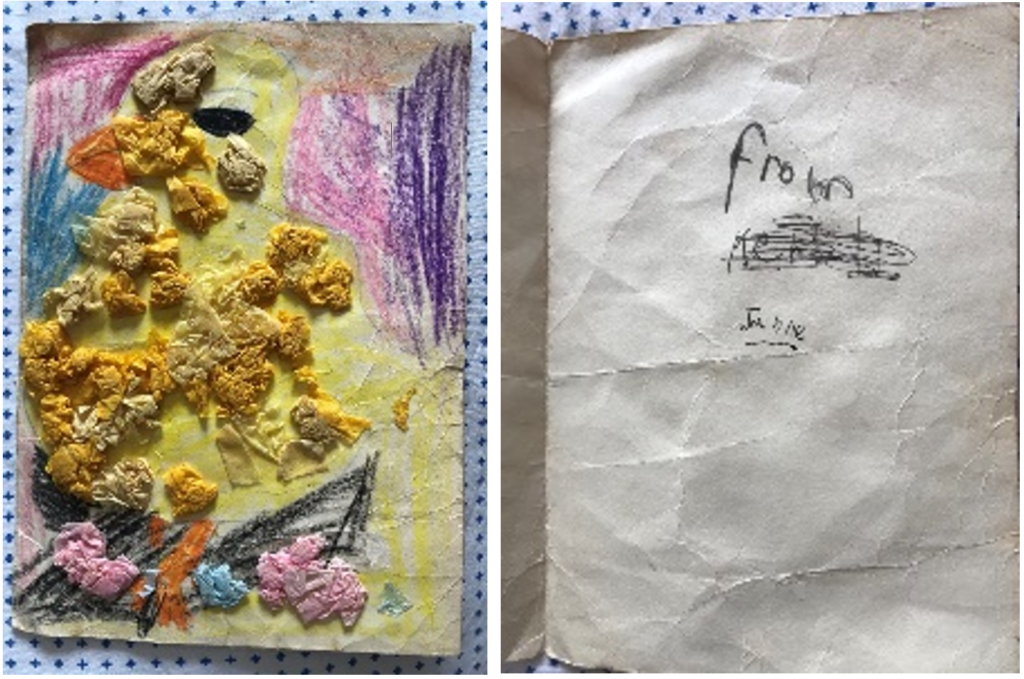Opening up Conversations about Performativity, Playfulness and Creativity in the Early Years of Primary School.
Dr Jo Albin-Clark

I’ve inherited a bag filled with my primary school books and creations. One thing catches my attention, a faded card with an adult drawn chick shape decorated with scrunched up tissue paper. Inside, a young hand has written ‘from Keith’ that my younger self has scribbled out and, in its place, written my own name. I wonder about the missed events from the last year, and the gaps in the bags that go quietly into lofts.
Anyone with involvement in teaching young children in schools will have a memory of all the reasons why cards get mixed up. Sometimes card marking can feel like a production line, set up from an adult made template, pre-prepared materials in a row, an alphabetical list being ticked off at speed as sticky creations are laid out to dry. It is easy to mix things up in the lively reality of a classroom.
Yet the scribble tells stories of the discourses that swill around education. It talks of teachers under pressure in performative cultures where making cards and more playful pedagogies can get sidelined. It hints at the precarious nature of subjects that are not literacy and mathematics. It raises questions about how confident teachers feel in allowing children to lead their own learning with the related pressure to send home such things to families. Looking back at the scribbled-out name, I wonder if the card had been a more individual creation myself and Keith would not have got mixed up.
Recently my research enquiries consider the inter-relationships between children and the things they use in the classroom. Although the reading can take time to make sense of, I have found the thinking a refreshing alternative to the educational policy climate of England that can privilege individual outcomes. I have found that post-human theorists like Barad open the door for viewing education within a more complex frame of interdependency between humans, matter and materials .
So going back to my ancient Easter card; through the lens of Karen Barad’s theories I can see the entanglements between the material and the discursive. All those influences, questions, forms of analysis and enquiries begin to bubble up. I’m planning to use examples like the card mix-up and great scandal of scrunched-up tissue paper in my module teaching for our new Masters programme. In the Early Years pathway, I have a shiny new module called ‘The Power of Playful Pedagogies’. Using real artefacts like this can open lively debates and rich jumping off points for thinking, research and writing.
Reflecting on the last year, perhaps we can think about the ownership of children’s creations to save those moments when the dusty bag comes down from the loft. So now I bet you are wondering…does Keith’s mum have a card with my name scribbled out?
Dr Jo Albin-Clark is a senior lecturer in the Early Years Department, Faculty of Education at Edge Hill University.
